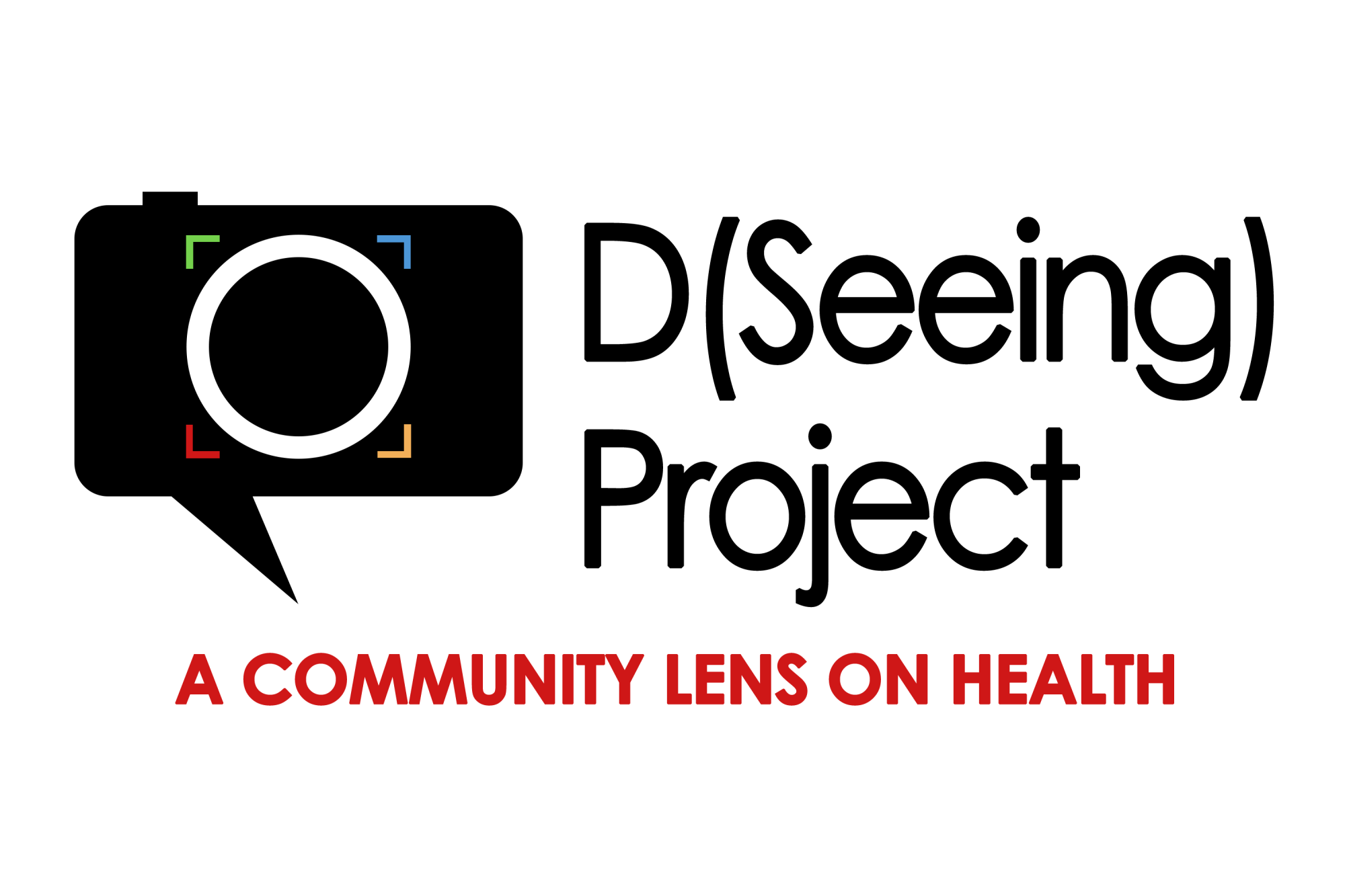D(Seeing) Project: A Community Lens on Health
We are looking for Black men and women age 18 and older from the DC/MD/VA area to participate in this study. This project will use photography to learn about what makes it harder or easier for Black men and women in DC to get services such as HIV testing and treatment. For this study, you will take photographs and discuss them with a small group. You will receive up to $250 for your time over a month.
Want to participate?
Questions? Call/Text: (202) 688-5686 or email dseeingproject gmail [dot] com (dseeingproject[at]gmail[dot]com) if you have any questions about this study.
gmail [dot] com (dseeingproject[at]gmail[dot]com) if you have any questions about this study.
What is the D(Seeing) Project?
The D(Seeing) Project is an ongoing photovoice project with Washington, DC residents (community co-researchers) who are currently seeking HIV prevention/treatment services. Community co-researchers are given a camera to document their lives over the course of 4 weeks, during which time they come together online in small groups to share and talk about their photos and what they represent. At the end of the project, a public gallery event will display select photos and narratives as a way for these community co-researchers to share their experiences of socio-structural barriers to HIV prevention/treatment services through their own voices. In this way, co-investigators and community co-researchers work together to recognize common difficulties for DC residents seeking HIV prevention/treatment services and thus identify HIV-related DC policies that can be improved.
What do community co-researchers do?
- Take photos of their lives for 4 weeks
- Participate in online small group discussions about their photos with other community co-researchers
- Choose photos and narratives to share at a public gallery event
- Optional: Help co-investigators identify HIV-related DC policies that can be improved
What do co-investigators and project coordinators do?
- Provide the online space for community co-researchers to meet and discuss their photos
- Be available to provide technical support and answer any questions the community co-researchers may have throughout the project
- Host a public gallery event where select photos and narratives will be shared
- Identify HIV-related DC policies that can be improved
D(Seeing) Project Community Co-Researchers Activities Timeline
Part 1: Camera Orientation
-
Receive Camera
-
Photography Training
-
Project Introduction
-
Compensation: $50
➡
Part 2: Group Photo Discussions
-
Two Meetings
-
Share and Discuss Photos
-
-
-
Compensation: $150
➡
Part 3: Gallery Event
Planning Discussion
-
One Meeting
-
Discuss Public Gallery Event
-
Compensation: $50
Who is eligible to participate?
- Black sexual minority men and Black heterosexual women
- Must be 18+ years old and living in Washington, DC
- Must have sought HIV prevention/treatment services in the last 12 months
- Must be fluent in English
How many people will participate in the project?
- 40 men and 40 women will be invited to participate
- Group photo discussions will be online in small groups of 8-10 community co-researchers
What are the goals of the project?
- To shine a light on the socio-structural barriers to seeking HIV prevention/treatment services in Washington, DC
- To gather photos and narratives for a public gallery event so community co-researchers can share their experiences through their own voices
- To improve HIV-related policies in DC
Who do I contact if I have questions?
Contact the D(Seeing) Team via:
- Email at dseeingproject
 gmail [dot] com (dseeingproject[at]gmail[dot]com)
gmail [dot] com (dseeingproject[at]gmail[dot]com) - Phone/Text at (202) 688-5686
Please leave us an email, phone, or text message and our team will respond ASAP.
D(Seeing) Project Research Team
Principal Investigator:
- Lisa Bowleg, PhD, MA
Project Director/Co-Investigator:
- Jenné S. Massie, DrPH, MA; Department of Psychological and Brain Sciences, GW
Co-Investigators:
- Tamara Taggart, PhD, MPH; Assistant Professor, Department of Prevention & Community Health, GWSPH
- James Peterson, EdD; Assistant Research Professor, Department of Epidemiology, GWSPH
- Deanna Kerrigan, PhD, MPH; Professor & Chair, Department of Prevention and Community Health, GWSPH
- Leah Varga, PhD; HIV Services Planner, HIV/AIDS, Hepatitis, STD, and TB Administration (HAHSTA)/DC Department of Health


